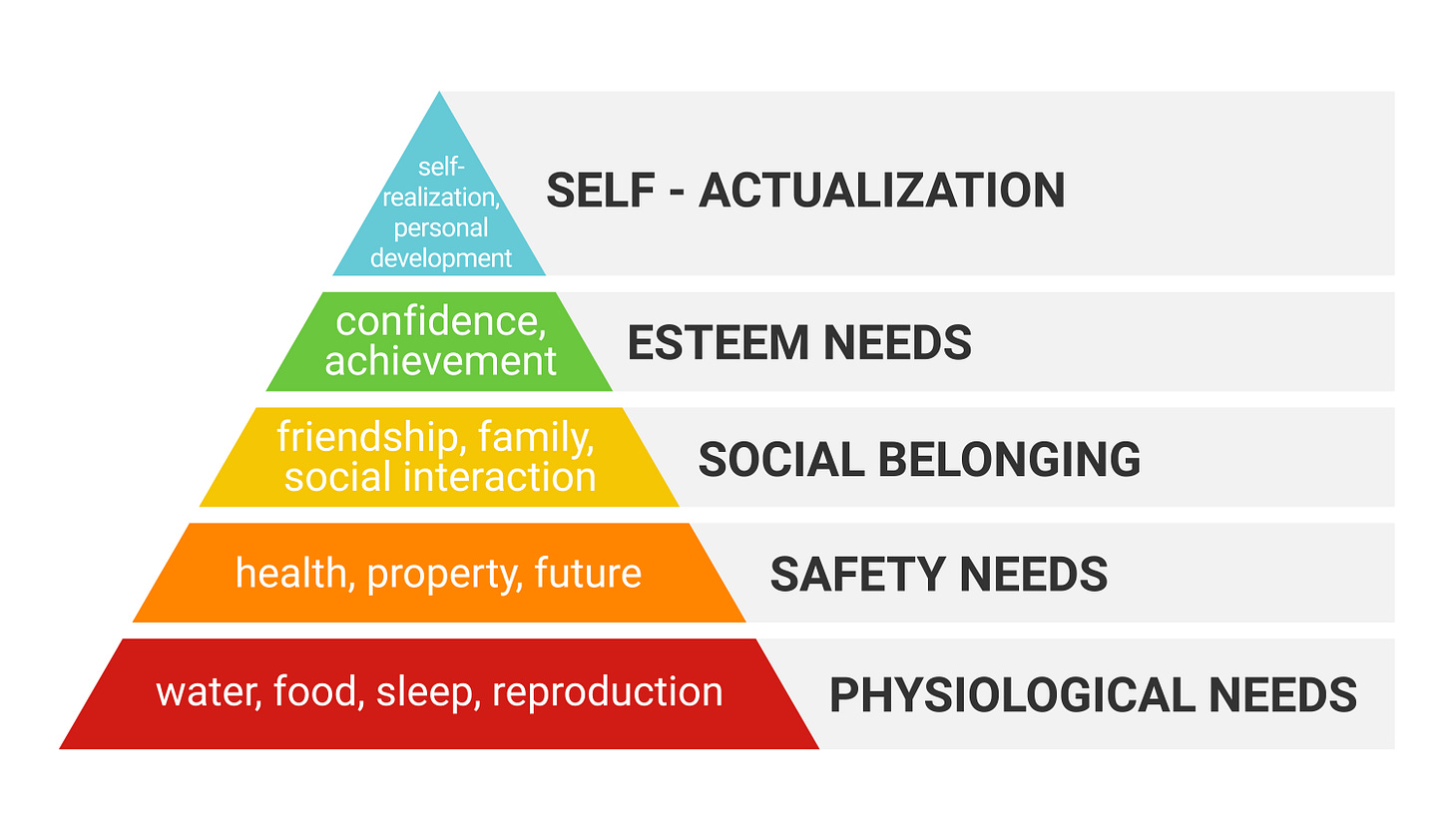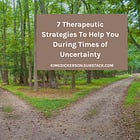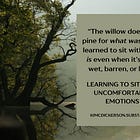Backward Facing Therapy contains soulful and insightful stories from my time as both a therapist and a therapy client. Sit by me as we work on our mental health together. Paid subscribers get access to downloadable workbooks, worksheets, journals, and more in Kim’s Therapy Space.
Posts are informational and should not be considered a substitute for professional health care.
My friend called me a few months ago, attempting to get the words out. Between sobs and snot, she informed me that her husband had been picked up by ICE (United States Immigration and Customs Enforcement).
They have been a couple for over thirty years, own a home, have two children, and both work multiple jobs. Other than a few traffic tickets, neither have been in trouble with the law.
Until one ordinary day.
My friend’s husband was stopped by Immigration Enforcement in South Florida (on his way to work), and although he holds a green card, he was detained and transported to a detention facility.
He has not been heard from since.
While some people may celebrate a green card holder being detained by ICE, I find it abhorrent.
While some may celebrate a place like Alligator Alcatraz, I am outraged.
While some may applaud our military being ordered into California (while ignoring the governor’s wishes), I find it one step closer to authoritarianism.
The show of force, the riot gear, the tanks, the smoke bombs…they are meant to intimidate not just immigrants but United States citizens exercising their right to protest.
And this show of force? It’s scaring people. They’re afraid to protest, afraid to speak out on social media, or afraid period.
And this is exactly where they want us. Afraid.
When we fear for our safety, our friends and family’s safety, and we see rights being violated without due process, it can cause us to feel helpless.
And after we’ve protested, signed petitions, filed lawsuits, and noticed that nothing has changed?
Learned helplessness can creep in.
Learned helplessness occurs when a person who has experienced repeated challenges comes to believe they have no control over their situation. They then give up trying to make changes and accept their fate.
It was first identified in studies where animals were exposed to inescapable shocks. Later, when given a way out, they didn’t even try. Humans can enter the same mental state, especially in oppressive or destabilizing environments. Source
How many of you feel helpless about things happening in the US right now? <raises hand>
Quiet and submissive, that’s their goal.
How Political Leaders Wear Us Down
1. Overload and Chaos: Flood the System
Constant chaos through breaking news, rapid policy changes (tariffs on, tariffs off), or inflammatory rhetoric keeps people in a state of chronic stress. The brain becomes overwhelmed trying to track what’s happening. This is by design: when you’re emotionally flooded, you’re less likely to organize, resist, or act.
Result: Cognitive fatigue. The nervous system shifts into survival mode (fight, flight, or freeze), and eventually burnout.
2. Normalize the Unacceptable
When lies, cruelty, or injustices are repeated often enough, they become background noise. This is called desensitization. What once shocked people becomes “just the way things are.”
Result: We stop reacting. We stop hoping things will change.
Desensitization refers to the reduced emotional response and sensitivity towards violence, leading to decreased arousal, intervention tendencies, and sympathy for victims.
3. Create a Sense of Futility
Leaders often present resistance as useless. They may rig systems, invalidate protests, ignore mass outcries, or crush dissent with force or ridicule. The message is: No matter what you do, it won’t matter.
Result: People internalize the belief that their voice or actions are meaningless »»» classic learned helplessness.
4. Divide and Isolate
By turning groups against each other — rich vs poor, liberals vs conservatives, Christian vs not, people become fragmented. Political leaders often use propaganda, scapegoating, and fear to pit citizens against one another.
Result: Isolation and distrust weaken community resilience, making collective action harder.
5. Use Fear and Threats
Intimidation, surveillance, or threats (explicit or implied) silence dissent. Even watching others be punished can induce what's called vicarious trauma, teaching observers that it’s dangerous to speak up.
Result: People become afraid to resist, even if they disagree.
6. Exploit Economic Insecurity
When people are worried about survival basics like housing, food, healthcare, and childcare, they don’t have the energy to organize.
***Political leaders may intentionally defund social services or create instability to keep people preoccupied with basic needs.
Result: Maslow’s hierarchy kicks in, and resistance becomes a luxury.
The Antidote: Small Acts, Community, and Nervous System Repair
While we can’t change the votes of our fellow citizens, we can control what we do to help prevent falling into the trap of learned helplessness.
One antidote? Reconnect with your power in small, meaningful ways:
Ground yourself using evidence-based techniques. More here:
Build mutual support systems. Engage with your local community advocacy groups. Get to know your neighbors. Visit local small businesses.
Take breaks from media noise. Suggestions here:
Educate yourself and others so you don’t fall for propaganda. Research before believing.
Re-engage when you’re ready. That can be in the form of sending an email to your member of Congress, volunteering, creating art or engaging in a hobby, or resting. Each act reduces a sense of helplessness.
Feeling anxious or depressed? Seek out help from a mental health professional. Asking for help is a strength, not a weakness.
Resistance doesn’t always look like a march or a fancy protest sign. Sometimes it looks like not giving up on your humanity.
*It takes a lot of time to create these posts so if you appreciate them, becoming a paid subscriber is the best way to support my work.
**You can also give me a hug in a mug by buying me a coffee or sending a dose of mindfulness. ☺️
***Shares, likes, and comments are also a way to show your support. Either way, I’m glad you’re here.
Journal Prompts:
What messages—spoken or unspoken—have I received about my ability to create change?
How does my body react when I believe I have no control?
What small thing have I done recently that made a difference, even if no one noticed?
Take care of yourselves and each other,
Kim












